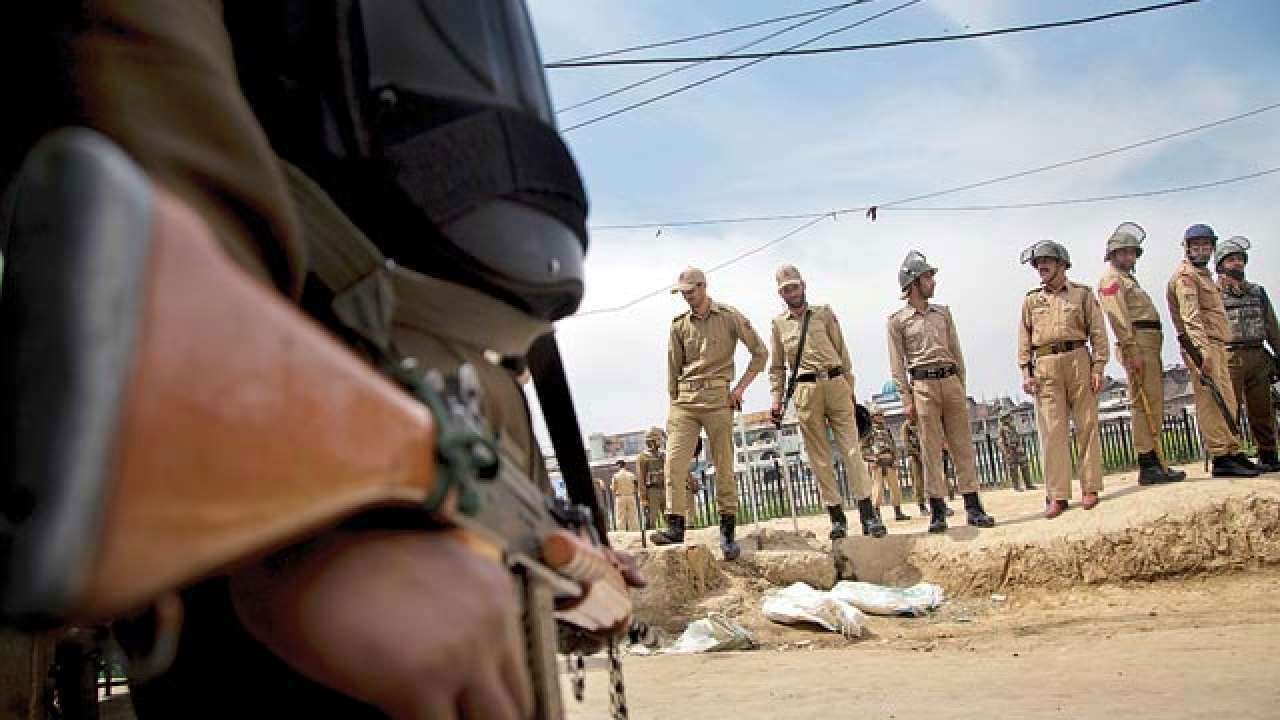J&K Govt Employees Dismissed for Lashkar-e-Taiba Terror Links Under Article 311(2)(c)
By: Javid Amin | 22 Aug 2025
The Breaking Development
In a decisive move against terror networks infiltrating state institutions, the Jammu and Kashmir administration has dismissed two government employees—Khursheed Ahmad Rather, a teacher, and Siyad Ahmad Khan, an Assistant Stockman in the Sheep Husbandry Department—over alleged links with the banned terrorist outfit Lashkar-e-Taiba (LeT).
Both individuals belong to Kupwara district, a region strategically located near the Line of Control (LoC), which has long been vulnerable to cross-border smuggling, radicalization, and insurgent activity.
Who Were the Dismissed Employees?
-
Khursheed Ahmad Rather (Teacher)
-
Posted in the Education Department.
-
Allegedly acted as an overground worker (OGW) for Lashkar-e-Taiba.
-
Accused of facilitating indoctrination of youth through covert networks.
-
-
Siyad Ahmad Khan (Assistant Stockman)
-
Worked in the Sheep Husbandry Department.
-
Accused of being directly involved in arms smuggling operations along the Kupwara–LoC axis.
-
Reportedly maintained communication with LeT handlers across the border.
-
Their proximity to the Line of Control made them “ideal conduits” for smuggling, logistics, and ideological outreach, according to official sources.
Legal Grounds: Article 311(2)(c) of the Indian Constitution
The dismissals were ordered by Lieutenant Governor Manoj Sinha under Article 311(2)(c) of the Constitution of India.
What does Article 311(2)(c) state?
-
It allows the dismissal, removal, or reduction in rank of government employees without holding an inquiry if it is deemed necessary in the interest of the security of the State.
-
This extraordinary provision is used sparingly and only in cases where a formal inquiry could compromise sensitive intelligence sources or jeopardize national security.
By invoking this clause, authorities have signaled that the evidence against the employees was considered serious enough to bypass the normal disciplinary process.
Part of a Wider Crackdown
This move is not isolated. It is part of a larger campaign to purge terror sympathizers and overground workers from government institutions in Jammu & Kashmir.
-
Since 2020, over 70 government employees have been dismissed for alleged terror links.
-
These dismissals cut across departments—education, health, police, and administration—indicating that extremist networks had penetrated multiple layers of governance.
-
The government maintains that state machinery cannot be allowed to shelter individuals working against India’s sovereignty.
Such measures are intended to dismantle sleeper cells and prevent sensitive information leaks that could aid militants.
Kupwara: A Sensitive Border District
Kupwara, where both dismissed employees hailed from, has a unique significance:
-
Geographical Location: It shares a long stretch of border with Pakistan-occupied Kashmir (PoK).
-
Smuggling Routes: Known for infiltration attempts, drug trade, and illegal arms trafficking.
-
Militant Presence: Historically, Kupwara has been a hotbed of Lashkar-e-Taiba activity, with numerous encounters and seizures reported.
The presence of government employees allegedly serving as conduits underscores the complex challenges of counter-insurgency operations in border districts.
Governance vs. Insurgency: The Larger Picture
The dismissals highlight the delicate balance between governance and security in Jammu & Kashmir. On one hand, the administration aims to restore normalcy and deliver public services; on the other, it faces persistent infiltration of extremist ideologies and networks into civilian and state structures.
Key Implications:
-
Security Reinforcement – Reinforces the message that state employees cannot enjoy immunity if linked to anti-national activity.
-
Public Trust – Seeks to reassure citizens that government institutions are being cleansed of extremist influences.
-
Deterrence – Acts as a warning to other potential sympathizers working within official structures.
However, critics argue that such summary dismissals must be transparent and based on strong evidence, to prevent misuse and ensure fairness.
Global Parallels
The strategy of removing radicalized individuals from government services is not unique to India:
-
Turkey dismissed thousands of employees post-2016 coup attempt over alleged ties to extremist groups.
-
United Kingdom has a Prevent strategy aimed at identifying radicalization risks among public employees.
-
Israel routinely acts against individuals in sensitive jobs suspected of links with militant organizations.
This reflects a global consensus that national security cannot be compromised within state institutions.
Conclusion: A Strong Message Amid Fragile Peace
The dismissal of Khursheed Ahmad Rather and Siyad Ahmad Khan sends a strong signal that Jammu & Kashmir’s administration will not tolerate employees working against the sovereignty of the nation.
While it underscores the seriousness of the threat posed by overground workers of terrorist outfits like Lashkar-e-Taiba, it also highlights the delicate governance challenge of ensuring security without alienating the broader population.
The move is both preventive and symbolic—a message that those entrusted with public service cannot simultaneously serve anti-national interests.

